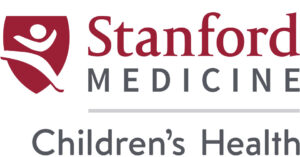New Foundation Grants Address Family Engagement, Palliative Care, Developmental Disabilities Care
Evaluation Also Planned for National Standards for Systems of Care
PALO ALTO – Increasing family involvement in policies and programs that affect children with special health care needs and their families is the focus of two new grants from the Lucile Packard Foundation for Children’s Health.
Two additional awards support improving home-based pediatric palliative care and enhancing integrated care for individuals with developmental disabilities. The Foundation also has contracted for an external evaluation of its National Standards for Systems of Care Initiative.
The grants:
Family engagement is effective for improving health care quality and outcomes; patient safety; patient, family and provider satisfaction; and for reducing costs. Yet meaningful family engagement by health care agencies and organizations is far from the norm. Previously, the Foundation supported national Family Voices to develop a self-assessment tool to be used by entities serving children and families. It is intended to promote the engagement of families in their operations and help those who are partnering with families to understand how comprehensive and effective their processes are. This new project will encourage use of the assessment tool and accompanying resources to assess, guide, and improve family and youth engagement.
Medicaid is the single largest insurer of children with special health care needs, and thus sets the standards and expectations for their care for the practice community. Federal regulations require state Medicaid programs to have advisory committees of key stakeholders. Anecdotal evidence suggests that there is great variation in the extent and ways in which state Medicaid programs engage CSHCN beneficiaries in their work designing policies and programs, but no reliable data are available. This grant, to the Center for Health Care Strategies, will help identify and document the full range of activities that state Medicaid agencies are undertaking to engage pediatric beneficiaries and families. The report will outline promising practices and areas for improvement, and will provide a set of recommendations on how Medicaid and other state agencies can improve their family engagement practices.
Improving Home-Based Pediatric Palliative Care for Children
Pediatric palliative care is often misunderstood as end-of-life care. In fact, it is a set of mostly hospital-based services to ease suffering and promote well-being at any stage of serious illness. There are only eight hospital-based pediatric palliative care programs in California, and a troubling shortage of providers. This grant to Children’s Hospital of Los Angeles will support creation of a protocol for the implementation and evaluation of a model for home-based pediatric palliative care that would be provided via telehealth technology. A comprehensive description of the model and its key components, as well as implementation resources and evaluation tools needed to pilot test the model, will be developed.
Children with intellectual and developmental disabilities (I/DD) are particularly dependent on an array of specialized health and social services, yet those services often are fragmented, inadequate and difficult to coordinate. Consequently, these children have a higher incidence of inadequately managed chronic health conditions, and more hospitalizations, lost school days, and emergency room visits compared to other children. Most of these children have health care coverage, but primary care providers often lack the time, experience and resources necessary to provide high-quality care, and rarely practice in settings that integrate or even coordinate the extensive social and behavioral health services that are also required. One community health clinic in California is trying to address these challenges and meet the special needs of the I/DD population. Uniquely, this clinic, which specializes in the care of these patients, is physically co-located with a Regional Center. The Achievable Foundation will develop and disseminate a case study of this unique model of care. The goal of the case study is to develop a resource that can be used to support replication of the successful health clinic/Regional Center co-location model throughout the state.
In addition to the grants, the Foundation awarded a contract to Issues Research, Inc. to evaluate the use and impact of the National Standards for Systems of Care for Children and Youth with Special Health Care Needs. Since 2012, the Foundation has supported a series of projects to create, disseminate and promote the adoption of these national consensus standards. The project was begun in response to action by state Medicaid programs to move children with special health care needs into managed health care plans, an action that causes parents of these children concern that the quality of care would be overly influenced by financial considerations. Surveys and anecdotal reports suggest broad adoption of the Standards, but to date there has been no external evaluation. This evaluation is expected to provide information about promising practices and effective approaches for the dissemination, uptake, and use of the Standards, and will identify further opportunities to promote their uptake and effective use.
###
About the Lucile Packard Foundation for Children’s Health: The Lucile Packard Foundation for Children’s Health is a public charity, founded in 1997. Its mission is to elevate the priority of children’s health, and to increase the quality and accessibility of children’s health care through leadership and direct investment. Through its Program for Children with Special Health Care Needs, the foundation supports development of a high-quality health care system that results in better health outcomes for children and enhanced quality of life for families. The Foundation works in alignment with Lucile Packard Children’s Hospital Stanford and the child health programs of Stanford University.

